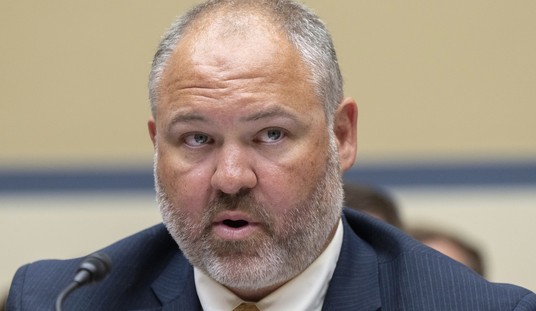Say, wasn’t this agreement with Mexico to avoid tariffs supposed to be nothing different at all? Mexico’s foreign minister announced that their national guard deployment to the border would start today and ramp up rapidly, a dramatic change in the status quo:
Deployment of National Guard forces to Mexico’s southern border was due to start on Wednesday and will advance quickly under a migration control deal signed last week with the United States, Foreign Minister Marcelo Ebrard said on Wednesday.
Mexico and the United States signed the deal on Friday, with Mexico agreeing to take steps to control the flow of people from Central America, including deploying 6,000 members of the country’s National Guard across its border with Guatemala.
“Starting from today, and in the coming days, the deployment is going to progress rapidly,” Ebrard said during a news conference with President Andres Manuel Lopez Obrador.
Ebrard did not disclose how much the deployment and other measures would cost. President Andrés Manuel López Obrador did give a hint, however, by disclosing his personal sacrifice to fund the effort:
Lopez Obrador said some of the money needed to pay for the beefed-up migration program will come from selling the former presidential plane, at a minimum price of $150 million, and from the sale of other aircraft used in the prior administration.
So let’s try to get this straight. All weekend long, we were told by various media outlets, led by the New York Times, that this agreement had nothing new in it and that Trump retreated without changing the status quo ante. Five days later, Mexico announces a new troop deployment to its southern border and its president is selling off its fleet of private jets to pay for its new asylum responsibilities.
If I didn’t know better by reading our famously neutral and accurate national media, I’d say that Trump changed the game with his tariff threats. Ebrard certainly seems to think so, too:
Mexico also agreed to a 45-day timeline to show that increased enforcement efforts were effective. “A lot of things have to happen in 45 days,” Ebrard said. “We are going to do what we said we are going to do.”
Ebrard’s correct to worry. If these measures aren’t effective, they know that Trump will demand that Mexico adopt the “safe third country” protocol permanently. That would require Mexico to provide asylum for refugees from Central and South America and not the US, which López Obrador has firmly opposed — until Trump threatened a trade war. Suddenly, López Obrador is doing everything he can to stem the refugee tide to avoid either outcome.
It’s a big win for Trump, at least in the short term. However, as I argue in my column at The Week, that battle victory might complicate matters for Trump in the overall war on immigration policy as well as in his 2020 re-election bid:
This first-round win makes it almost impossible for Congress to overturn tariffs if Mexico’s actions don’t significantly alleviate the border crisis. However, a new round of tariffs will do real economic damage in the U.S. as well as Mexico, at just the time when Trump will need a strong economy to keep his re-election hopes alive.
The review period for this agreement comes 90 days from now. That puts off another potential round of tariff brinkmanship to immediately after Labor Day, when voters begin to pay more attention to the Democratic presidential primaries. A show of toughness from Trump might play well with voters, but if tariffs start dragging down the U.S. economy as we head into the holidays and the first Democratic contests, it will drag down Trump’s numbers with it. López Obrador will certainly understand that.
Even incremental improvement might be a political problem for Trump. He ran on the demand to build a border wall, and has used the crisis over the last several months to argue that’s more necessary than ever before. What happens if Mexico’s harsher enforcement alleviates that pressure? Congress isn’t likely to act in a bipartisan manner on immigration reform and border security in an election year, especially not after the divisive fight over Trump’s national emergency declaration. The path of least resistance for Democrats and no small number of Republicans will be to argue for a pause rather than going full steam ahead on Trump’s “big, beautiful wall.”
Can Trump win re-election without the wall? Can he generate the same kind of enthusiasm for his campaign if the pressure on immigration gets reduced? Unless Trump wins big in this gamble by forcing a solution that eliminates most of the pressure on the border, he might end up in a twilight zone where immigration hasn’t improved enough to claim a lasting win, but no longer hits a crisis level that will energize the populist-conservative base Trump needs for re-election.
Trump’s a gambler by nature, and he’s certainly won big in the past. His tariff threat was far more successful than his opponents and even some of his supporters predicted. Trump will need a very big win in this gamble to make it pay off in 2020, and at least so far, Mexico appears motivated to provide it.









Join the conversation as a VIP Member